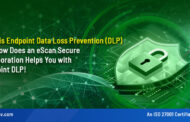Recently, Facebook has revealed that everyday approximately 600,000 of its accounts are compromised. This statement was in context of an entry introducing new security features for the social network and the figure is based on the statistics showing that on any given day, 0.06% of 1 billion logins per day are compromised while less than 0.5% of Facebook users experience spam.
Now, Facebook is said to have proposed solution for such breaches and are continuously working on it. Though not shocked, however, I am surprised at the extent breaches are taking place. Not shocked for the reason that, I have been noticing people around me being hit by the virus links and other sorts of cyber attacks every now and then.
Facebook is a medium, which allows us to be connected with our near and dear ones, and this is the only reason for its popularity. Hence, if Facebook users keep this fact in mind while using the site, I am quite sure that the number of these cyber attacks will dip. Content is the driving force behind everything in media and in addition, we need to understand that these social networking sites do not create content rather we, the users do so, these sites provide a common platform for sharing this information. The only task these networking sites perform is to try to get more information from us, about us!
Hence, we need to be careful about the information we provide and the links we click on these social networking sites. However, at times it become difficult to recognise the genuine links and it can create havoc. In addition, users embracing Facebook is on the rise, Facebook has become one of the targeted playgrounds to tap into customer base.
In case of social networking sites, cyber criminals use Phishing as one of the popular ways to acquire personal information on an individual. This personal information can be anything- username, password, credit card details. The most frequent kind of the social engineering technique is used to direct the Facebook users to enter their personal details at a fake website, which looks identical to the genuine one. And, once you do so, you become a potential victim simply by clicking a malicious link through which your personal details may be stolen. Such details become the tools for identity theft.
It is estimated that more than 70% of the phishing attacks on these social networking sites are successful. Hence, the only way to be protected from such phishing attacks is to make sure that the access to the malicious websites / URLs is blocked.
eScan’s Malware URL filter has the capability to detect the phishing content of these websites. The Malware URL filter is integrated with web browsers and email clients. eScan’s efficient algorithms match the algorithm of the website/ URL requested to open with the algorithms of the legitimate ones. If the requested website/URL matches correctly, then the user is allowed to view the site. If not, then it gives you an indication of the same by redirecting the user to a notification page.
Hence, whenever you try to visit any site, it should display the real domain name for the website. Moreover, mobile/smartphone users should be aware that long domain-names are not displayed properly and they should take extra precaution while surfing the internet. This action of the user prevents the fraudulent websites from posing as any other legitimate web sites, thus preventing you from getting into the trap of any phishing attack.
So, how secure are you from these phishing attacks?





5 Comments
Sanjay kumar
Good
Sanjay kumar
Good for me . I fully satisfy with this antivirus .
Rakhi kankane
That’s great Sanjay…
Enjoy Safe computing with eScan!
Rakhi kankane
Thanks
Pingback: How secure are you from phishing attacks ? | owndailyarticles.org